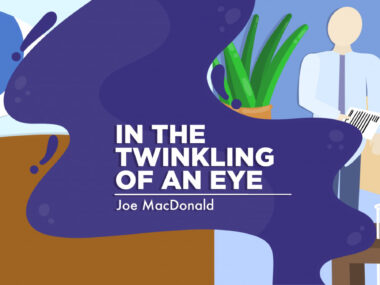Finding the courage to ask questions as a hemophilia parent
How raising children with bleeding disorders helped me find my voice
Written by |

At 6 p.m., Monday through Friday, my television is faithfully tuned to “Jeopardy!” The theme song and sounds of the buzzers usher in a comforting ritual each night that’s part of my home. “Jeopardy!” is a long-running quiz show where contestants are given the answers and must respond with a question. I can tell how successful I’ll be when scanning the categories. If it’s classical music, the ’80s, or religion, I’m optimistic. However, if it’s world geography or history, I’m done.
My husband and I play along and shout out the responses. More often than not, I hesitate, second-guessing myself. And the minute the contestant responds with the answer that was on the tip of my tongue, I blurt out, “That’s what I was going to say!” It happens frequently.
Even as a kid in school, I found myself hesitating in class. I knew the answer but held back. I was afraid of being wrong and even looking ignorant. That same insecurity surfaces during “Jeopardy!” even though I’m in the safety of my home.
I also hesitated to ask questions in class, fearing others would think me foolish. Yet when I gathered the courage to ask, others would nod, also wanting the answer. However, when the issue at hand is serious, this hesitation and doubt become fear — and it can be paralyzing.
Finding my voice
When my first son was born with severe hemophilia in 1996, the feelings of doubt overwhelmed me. It took me back to my school days, but now, the stakes were much higher than anything I’d ever experienced.
I vividly remember my first encounters with the doctors. They were speaking and sounded like Charlie Brown’s teacher: “Wah wa wa wah wa wa.” My heart was racing, my chest was tight, and I could hardly breathe, much less speak. The only words I could find were these: “Will my son live?”
In those early days, I assumed the doctors knew everything. Surely they had all the answers, so I just needed to rely on them to tell me what to do. But I quickly learned a hard truth: Most doctors had no idea how to treat a baby with hemophilia. It was a rare condition, and their knowledge was limited. How could I advocate for my son when I didn’t have the language to ask the right questions?
The turning point came when I connected with our local bleeding disorders chapter. The parents were the ones who who helped me the most by sharing their experiences raising their children. It wasn’t only the stories of rising above hemophilia; it was also hearing about their mistakes — times they stumbled, learned, and became stronger. That gave me hope and courage.
These parents didn’t just provide me with information; they walked alongside me, inspiring me with their resilience and determination. That’s the kind of help and support a medical journal cannot provide. They also taught me a straightforward truth, which changed everything in those early days:
There’s no such thing as a dumb question. Ask. Ask again. Ask until you understand. Then ask some more.
This permission to ask questions without fear changed me. I slowly began to find my voice. It wasn’t because I became an expert equivalent to a medical doctor, but because I learned that courage isn’t about having the right question to ask. It’s about being brave enough to ask it in the first place.
When I have those moments in front of the television, second-guessing my answers, I remind myself of the scared young mother I was and how far I’ve come. Whether it’s a game show or a discussion with a clinician, the same lessons apply.
Speak up, trust your intuition, and never be afraid to ask questions.
Note: Hemophilia News Today is strictly a news and information website about the disease. It does not provide medical advice, diagnosis, or treatment. This content is not intended to be a substitute for professional medical advice, diagnosis, or treatment. Always seek the advice of your physician or another qualified health provider with any questions you may have regarding a medical condition. Never disregard professional medical advice or delay in seeking it because of something you have read on this website. The opinions expressed in this column are not those of Hemophilia News Today or its parent company, Bionews, and are intended to spark discussion about issues pertaining to hemophilia.




Leave a comment
Fill in the required fields to post. Your email address will not be published.